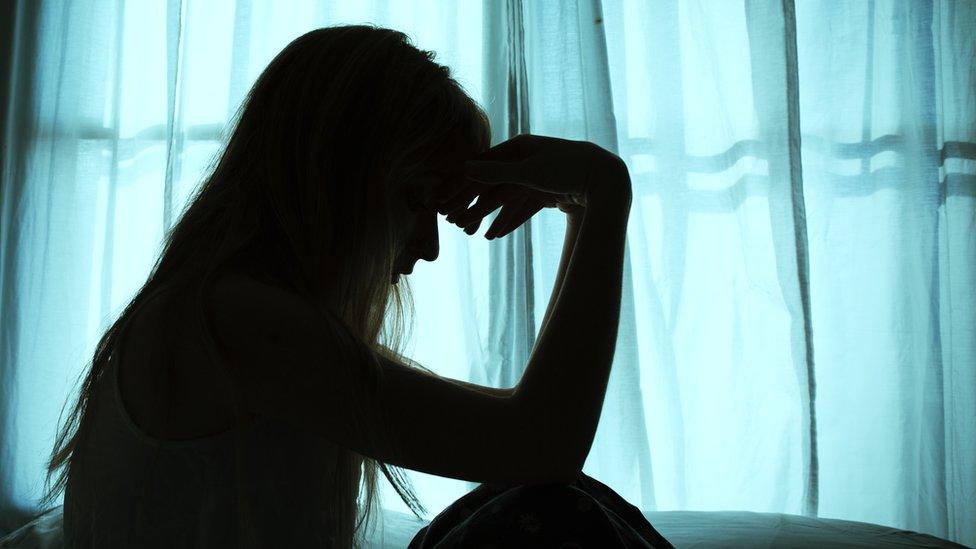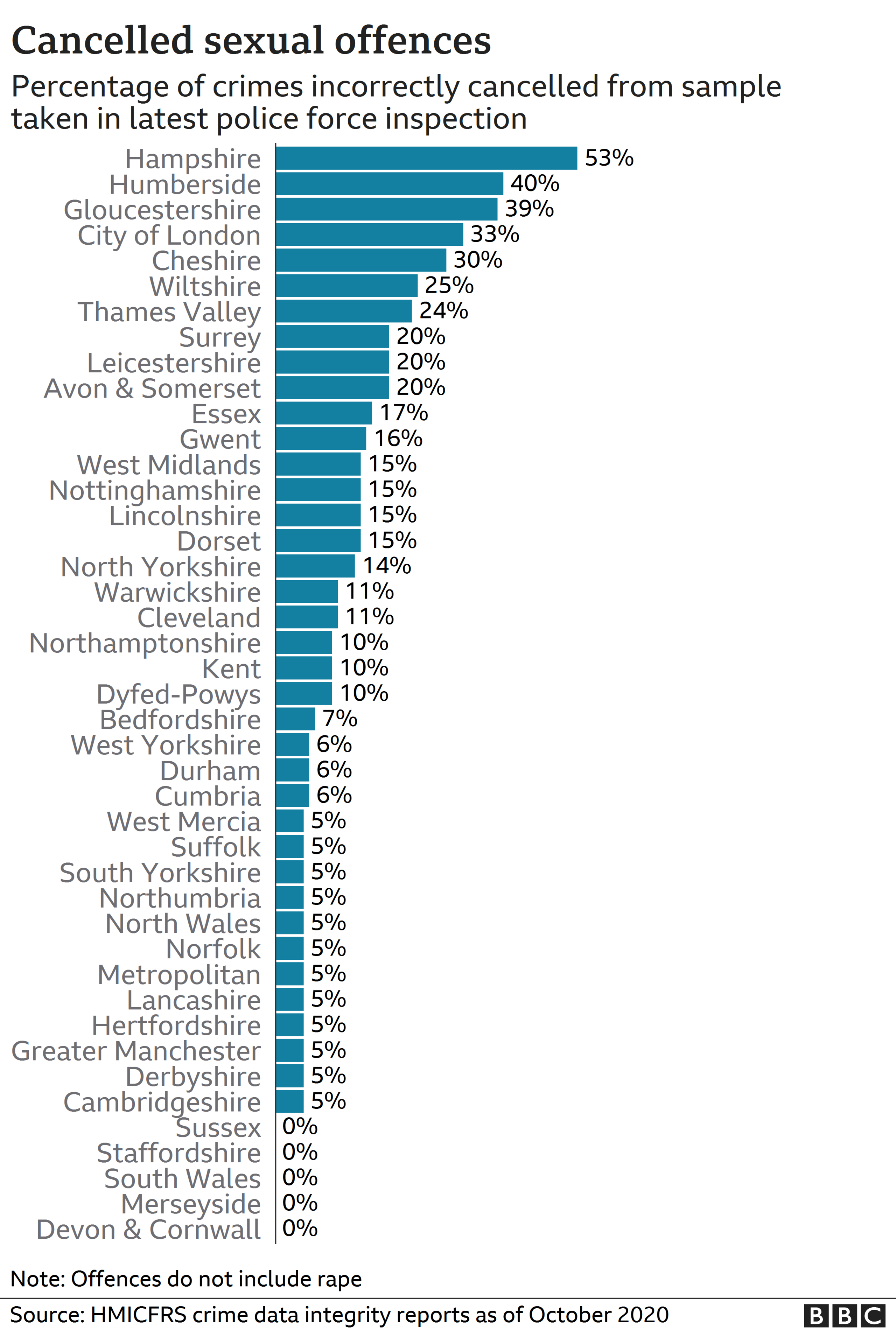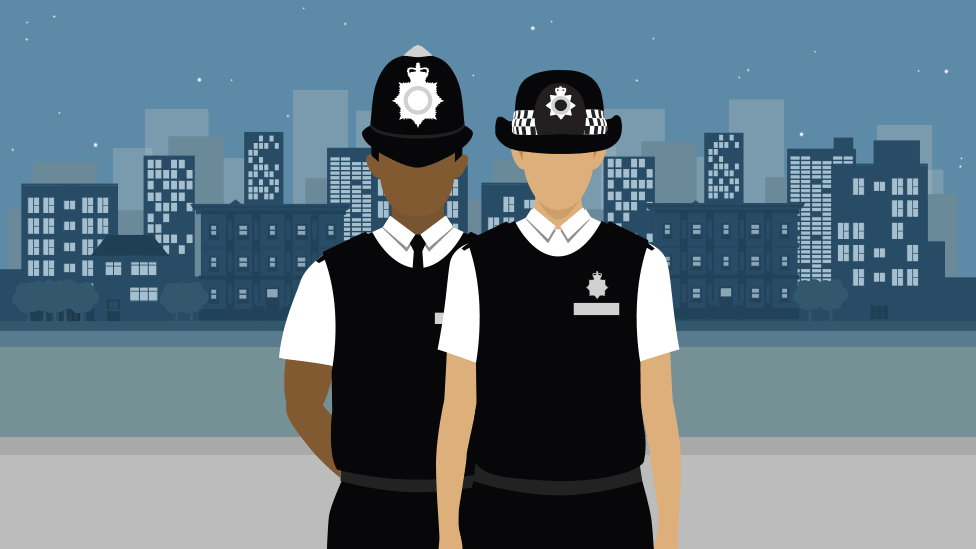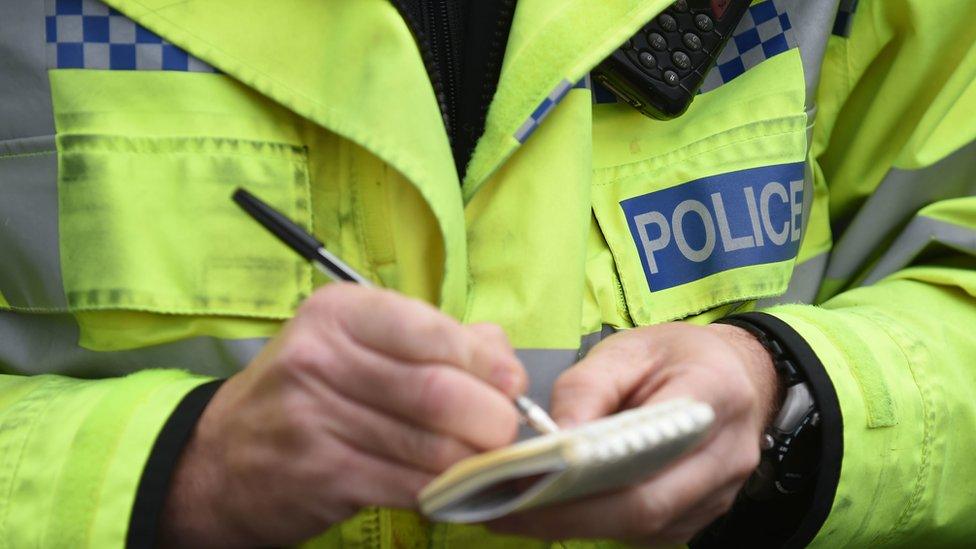UK police forces wrongly cancelled reports of serious crimes
- Published

Rape Crisis said 'systemic change' was needed to improve crime recording
Police wrongly cancelled records of serious crimes, in many cases without informing victims, analysis of official reports shows.
Inspections of 43 police forces in England and Wales detail how officers incorrectly cancelled reports of rape, sexual offences, violence and robbery.
Charity Rape Crisis said the findings were "completely unacceptable".
The Home Office said forces received "clear guidance" on cancelling crimes.
The BBC Shared Data Unit examined the most recent reports from HM Inspectorate of Constabulary and Fire Rescue Services (HMICFRS). The inspections were carried out between 2016 and 2020.
Inspectors reviewed a sample of situations when a crime was reported, but police officers later decided no crime had actually taken place.
Officers can correctly cancel a crime if new information comes to light - such as CCTV footage or a victim statement - which indicates it did not take place.
The watchdog found, however, that crimes were incorrectly being struck from the record.
Our analysis found:
At least 19 forces wrongly cancelled reports of rape
Thirty-eight forces incorrectly cancelled at least one record of a sexual offence
In many cases, victims had not been informed
Katie Russell, from the charity Rape Crisis, said the "premature and inappropriate dropping of investigations" had been a longstanding concern.
"This latest analysis... highlights that these issues are still very much current," she said.
"Especially considering the wide-ranging, significant and often lifelong impacts of sexual violence and abuse on victims and survivors, these criminal justice failings are completely unacceptable."
Ms Russell said "systemic change" of the criminal justice system was "so clearly and desperately needed".
Andy Higgins, research director at think tank The Police Foundation, said some of the problems around recording crime were "systemic".
He said: "Investigative resources are extremely limited, and with the massive increases we've seen in sexual offences, particular strategies are put in place to try and strategise and prioritise.
"The volumes [of crimes] are massive, investigative resources are slim and will be handled by different people in different forces.
"It's one of those areas where the strain is."


Crime data integrity inspections, external were introduced in 2015-16 in response to a Parliamentary committee, external, which identified under-recording was exaggerating falling crime figures.
Since then, the total has dropped each year, with around 23,000 fewer cancellations in 2018-19, according to separate figures published by the Home Office.
A National Police Chiefs' Council spokesman said it was "working to further improve the accuracy of crime reporting".
"Police will never close a case if they are merely unclear as to whether a crime happened or not," he said.
The Home Office promotes a victim-oriented approach to crime recording, which states a belief by the victim a crime has occurred is, in most cases, enough to justify its recording.
A spokeswoman for the Home Office said: "We expect crimes reported to the police to be investigated appropriately.
"We provide clear guidance to forces on when it is appropriate to cancel crimes and how this should be done and we expect them to comply with this to ensure victims have the confidence to report crime."
A 2015 inspection found the Police Service of Northern Ireland correctly cancelled 44 out of 45 crime records but the victim had been told of the decision in 39 cases.
Comparable data for Scotland were not available.
More about this story
The Shared Data Unit makes data journalism available to news organisations across the media industry, as part of a partnership between the BBC and the News Media Association.
For more information on methodology, click here, external. For the full dataset, click here, external. Read more about the Shared Data Unit here.
- Published22 January 2020

- Published8 October 2019

- Published17 June 2019
